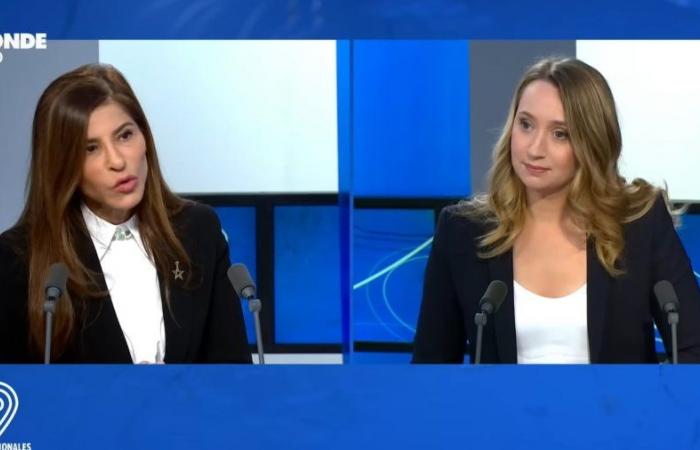
November 16, 2024, Samira SitaïlMoroccan ambassador to France, was the guest of the program “Internationales” on TV5 Monde, hosted by Clémentine Pawlotsky. This interview was a high-level exchange where we could listen to a diplomat whose rigor, firmness and mastery have become her true signature. Through meticulously chosen words and formulas, but also through the inflections of her voice, the ambassador set the rhythm with a discreet, but undisputed, authority. If Ms. Sitaïl usually has a mania for accuracy, this time, she also demonstrated striking sincerity, shedding new light on the major issues of the Franco-Moroccan relationship. Of the recognition by France of the sovereignty of Morocco on the Sahara to the fight against illegal immigration, including the results of the recent visit ofEmmanuel Macron in Rabat, this interview not only allowed us to lift the veil on interesting details, but it also dispelled a number of prejudices and clichés surrounding the relationship between Rabat and Paris.
A turning point: Macron’s state visit to Morocco
At first glance, the state visit carried out by Emmanuel Macron au Moroccofrom October 28 to 30, 2024, was inevitable. And for good reason, this visit marked a historic turning point in relations between the two countries, having made it possible to put an end to past misunderstandings. “There have been misunderstandings in the past, but today the page has been turned,” said Samira Sitaïl with great conviction. The ambassador also specified that the meeting between the French President and HM King Mohammed VI was not the result of chance, but the culmination of meticulous diplomatic work and a common will of the two Heads of State. “There was a sincere desire on both sides,” she added, stressing that it is this shared determination which made it possible to restore a climate of mutual trust between the two countries. “From this visit, we decided together to build the future, for the well-being of the Moroccan and French people,” she noted, reaffirming the strategic importance of this decisive step in the renewal of relations. bilateral.
In response to speculation from “Africa Intelligence”, which claimed that she would have used her Parisian connections to facilitate this rapprochement, the ambassador took care to recall that this reconciliation process was above all the fruit of collective work. “Yes, I played a role, just like other people,” she confided, while reaffirming that this reconciliation cannot be the work of a single individual. For her, this rapprochement was the fruit of a common desire, of a series of good wishes expressed on both sides. For Samira Sitaïl, this reconciliation embodies above all the expression of a shared desire of two nations wishing to overcome obstacles and build a common future.
The recognition of Morocco’s sovereignty over the Sahara: an act of truth
Another central point of the interview: France’s recognition of the sovereignty of Morocco on the Saharaa fundamental act materialized on July 30 by the letter sent by President Emmanuel Macron to HM King Mohammed VI. On this note, the journalist wanted to know if this gesture was what Morocco expected from France to end their quarrel? For the Moroccan ambassador to France, the answer is categorical: “It is not a gift, to be clear, it is not a symbolic gesture. We must understand that it is a duty of justice and truth, an act of truth.” And to clarify that France has never been in opposition with Morocco on this issue. “When we proposed the autonomy plan for the Sahara in 2007, France was the first country to support this approach,” she recalled. This support from France therefore does not constitute a turnaround, but rather a logical development, a further step in the recognition of Moroccan sovereignty. Until now, although France had supported this position, it had not expressed it as clearly and formally as in Mr Macron’s letter, she added. It is now done. Especially since the French President later insisted before the Moroccan Parliament declaring that the autonomy plan was “the only credible and serious option” to resolve the conflict.
Ms. Sitaïl was keen to situate France’s position in the context of developments in the Sahara issue at the international level. For her, France’s explicit support is part of a growing global movement of recognition, with now 112 countries supporting the autonomy plan as the most credible and viable solution for this conflict. That said, although this recognition is a strong act, it must be recognized that it does not immediately resolve the conflict, as the ambassador pointed out. “This may not change anything immediately, but gives France a leadership role in the management of this issue,” she observed. The importance of this support therefore goes beyond Morocco, because it allows France to regain a strong strategic position in this region of the world. Due to its historical weight in the Maghreb and the diplomatic role it exercises, it must be said that France is perfectly familiar with the geography and the challenges of this issue.





